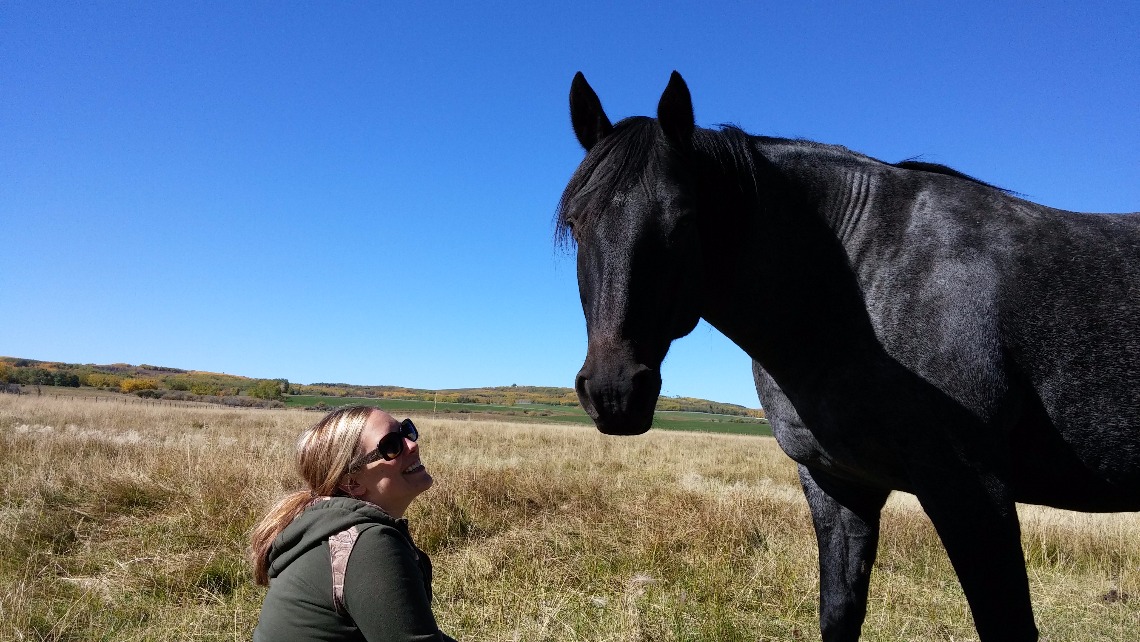“There is something about the outside of a horse that is good for the inside of a man.”
~Winston Churchill
Humans have been drawn to horses for centuries. The raw power they possess and the potential that comes with harnessing it has been front and center throughout many formative historical moments. Horses represent one of the more powerful and grandiose forms of prey in the natural world. Their survival is dependent upon their sensitive observational skills and compelling intuitive responses to their environment which has lead to a growing awareness and understanding of how horses mirror and respond to energy. While many a great leader has tapped into these survival skills and ridden to victory, these same inherent survival skills can be utilized too in our modern lives to both enhance and enrich our understanding, health and experiences.
Due to our society evolving to the point where human beings no longer actively prioritize or worry about a prey-predator dichotomy, we have focused more on our cognitive and intellectual capacities rather than on our energetic and feeling capacities which are inherent in basic survival instincts. In contrast, this awareness and prey response is still first and foremost in the horse. Thus, a human relationship with a horse demands that trust be gained in the process so that humans are not viewed as a threat.
The process of gaining this trust is one that requires the following, and once gained, the empowerment and refined repertoire that has developed along the way is invaluable:
Self Confidence:
Working with horses gives individuals an opportunity to master aspects of themselves that frighten them the most.
By confronting these fears, people may gain more courage and start to develop resiliency to help navigate life’s challenges in a different way. As horses are nonjudgmental or critical, individuals often will feel safe to try something out of their comfort zone. Task accomplishment is an efficient method to increase self confidence.
Reflection:
Horses have an amazing ability to mirror exactly what an individual’s body and emotions are telling them. They provide insight by bringing awareness of the true nature of the individual. As a prey animal, horses can sense any indecision or insecurity that their human partner may be experiencing. The immediate response of the horse guides people to change their behaviour in response.
Intuition:
Connecting with horses can allow people to learn how to connect with the intelligence of their hearts and emotions, leading to intuition, insights and social sensitivity as well as coherence. By becoming aware of these intuitive and emotional aspects, they can understand how to empower themselves more effectively.
Communication:
Humans are always communicating. Everything we think, feel, do and say sends out a message. Horses are said to be mirrors of us based on how they respond to what messages we are sending out to them. Horses help people become aware of how they communicate on every level – verbally, mentally, physically and emotionally.
Horses don’t use words to communicate, but they convey so much through body language, movement, postures and some sounds. It is up to us to learn their “language” to develop a better understanding of ourselves and if we are being congruent. Congruent expression (when what we feel on the inside is the same as what we express on the outside) helps individuals deal with relationship and emotional issues.
Mutual Trust:
Partnering with horses can provide an opportunity for us to learn more about how to earn and when to give trust. The ability to open oneself up to trust can be challenging for both the human and equine partner. The nature of horses invites trust as they are entirely open with their perceptions, feelings, and have nothing to hide. Honesty and self awareness are two great aspects that can foster an experience to develop mutual trust and loving communication.
Release:
Trauma and stress cannot be resolved simply by talking about it. It needs to be discharged out of the nervous system, which means tracking feelings and sensations in the body to help identify the changes later.
Horses know how to discharge trauma naturally, you will often see them rolling, shaking their head and bodies, yawning etc to help release the stress from their system. By doing those things, it allows their body to go from the sympathetic nervous system to the parasympathetic.
Humans tend to hold on to the stress physically and mentally…and so we need to find ways to help discharge it from our body and mind to be able to get to the parasympathetic state as well. Being in the presence of the horses allows an individual to resonate with the horses’ body and heart coherence and then feel the same resonance in their own body.
Adding the new skills listed above to their repertoire can aid individuals as they begin to find the strength and confidence to take on a more fulfilling role in our society. Ultimately, it can feel much safer to explore our relationship with a horse than another human being as they offer unconditional support and love to people without judgment which in turn starts the process of trusting self and others. Further, this can facilitate emotional learning as people identify their feelings with greater ease and clarity, which opens the door to new choices for relationship, emotional and self growth.



.jpg)